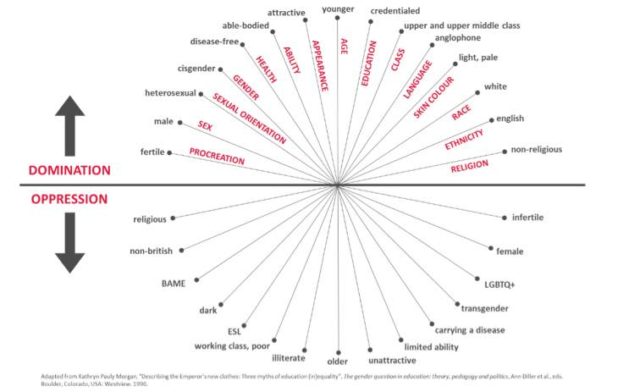Intro
Allison Nau
Exploring Diversity is the first in a series of guest blogs, opening with this first insight from Allison Nau on diversity and inclusion. Allison Nau hosted a panel on diversity and inclusion at the February 2019 CDO Hub event in London. She is also an Associate Strategy Advisor with Cynozure.
Organisations with greater gender and ethnic/cultural diversity are more likely to have better financial performance. This is a fact – as confirmed by various studies. But what does diversity actually mean?
We each have a unique identity; shaped by a combination of background and experiences, circumstances and choices, and individual characteristics. It goes beyond the familiar dichotomies of black/white, rich/poor, male/female, young/old, to consider the interactions between these different facets; diversity is the differences people have in background, circumstances, and individual characteristics[1].
Consider the following people:
- an immigrant with a mental illness who speaks accented English
- a white, Christian, midwestern American from a middle-class family
- an able-bodied, fair-skinned, educated, upper middle class, cisgender female
What do they look like?
Which of these three would you prefer to have as a co-worker, or manager? Who would you be most likely to have a pint with, or be pleased to sit next to on an airplane? How about have as your GP – even serve as Prime Minister?
And which of these three do you think is more likely to be unemployed and/or receive public benefits? Which of them do you consider most likely to build a start-up or volunteer with a charity – perhaps run a marathon? Serve as a carer? Commit a serious crime?
In answering these questions, assumptions are made based on these characteristics, circumstances, and backgrounds. Some of these assumptions may be based on personal experience; other assumptions are assigned consciously or unconsciously based on the hierarchies that exist within society. The illustration below explores how society views various aspects of diversity, as some categories have more privilege than others.

Where do you sit among these dimensions? Consider in which areas are you privileged – and in which areas are you disadvantaged? Of these, which of those are within your control and which are as a result of choices others have made? Which are static characteristics you were born with – and which aspects may change over time?
Now think back on those three different people:
- an immigrant with a mental illness who speaks accented English
- a white, Christian, midwestern American from a middle-class family
- an able-bodied, fair-skinned, educated, upper middle class, cisgender female
Each of those describes me: an able-bodied, fair-skinned, educated, upper middle class, cisgender female, midwestern American immigrant with a mental illness from a middle-class family, whose Cleveland, Ohio accent has been softened after seven years of living in the UK.
In many areas of society I am privileged; in others areas I am not. Identity cannot be easily defined by a single, or subset, of characteristics. Perceptions and assumptions about me as an individual change depending upon how I am described. Everyone has biases and prejudices because we live in a society that is biased and prejudiced. Sometimes it is difficult when looking at a dimension from a place of privilege to understand that people who do not share that privilege are treated differently- even when many cases are heavily documented, and some cases reinforced by government policy.
The ability to recognise the intersectionality of identity, explore one’s own biases, prejudices, and assumptions (- and understand how those with different backgrounds, experiences, and cultures may experience different levels of privilege in society), forms the critical foundation. And it’s on this foundation that we can build inclusive teams and products.
Allison Nau is a senior leader in data, an Associate Strategy Advisor with Cynozure, and a valued member of the CDO Hub community.
Related.
See all
Cynozure research calls for stronger data leadership in US financial firms to unlock data benefits

A CLEAR™ Path: How to Foster a Robust Data Culture by Leveraging Concepts from Industrial and Organizational Psychology

Outsmarting the Bots on demand: A practical application of machine learning




